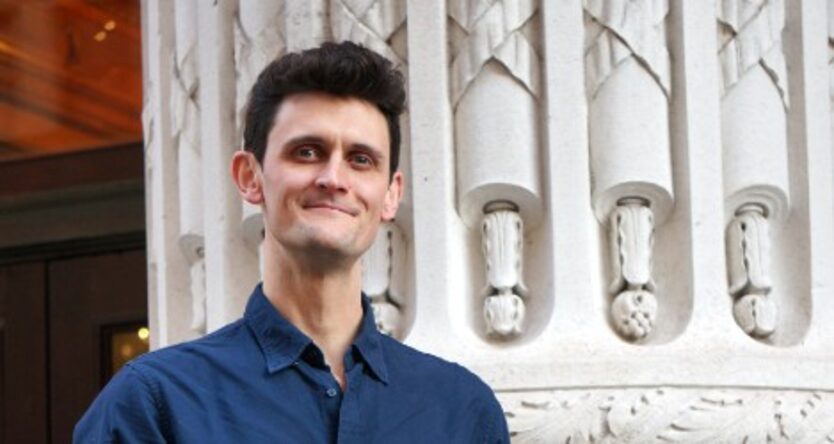As the fall semester begins with an unusual set of challenges, Ph.D. candidate Philip Johnson (Political Science), who studies crime and violence in Latin America, will be supported by two fellowships: a Harry Frank Guggenheim Foundation Dissertation Fellowship and a visiting fellowship with the Center for U.S.-Mexican Studies at the University of California, San Diego.
Johnson has traveled to Mexico several times in the last few years to study organized crime. He spent 10 months in Mexico City and Cuernavaca, investigating the phenomenon of how criminal syndicates communicate to the public through written messages, ranging from banners over bridges and in public plazas to the use of WhatsApp and Facebook.
“We’d normally expect them to keep a low profile, doing things through whispers and rumors,” Johnson says. “This is using social media and trying to make front-page news and putting messages where everyone can see them.”
Over the course of his time in Mexico, Johnson assembled a database of over 6,000 narco-messages and conducted interviews. Both of his fellowships support the writing of his dissertation, based on that research. The Guggenheim Foundation, which includes a grant of $20,000, is specifically for scholarship on violence and aggression. The fellowship at UC San Diego provides a similar amount of support. Because of the pandemic, Johnson will start the year in San Diego as a virtual visiting fellow.
Johnson, who has previously discussed his research with The Graduate Center and appeared on The Thought Project podcast, said that when applying for these fellowships, he pursued a different strategy than in the past. “I’ve applied [for grants] every year and haven’t had much success before,” he says. “This year I was a bit more targeted. I sort of gave up on applying for things where I could tell myself I was a good fit,” and instead applied for grants with clear ties to his work in Mexico and the topic of violence.
Because he was more selective, he was able to spend more time on each application, he says. He was also able to reach out to contacts who could write recommendations and give advice about these specific fellowships.
“I’ve had a really strong and awesome network of people within my department, and we all read each other’s proposals all the time — that’s been important all along,” he says. “This year I paired that with reaching out to other people who had success with different awards, and who I’d met at conferences or [elsewhere], and asking if I could look at their materials.”
This is the third consecutive year that a Graduate Center Ph.D. candidate has been awarded a Harry Frank Guggenheim Foundation Dissertation Fellowship.
Read more here.
Related



Follow Us